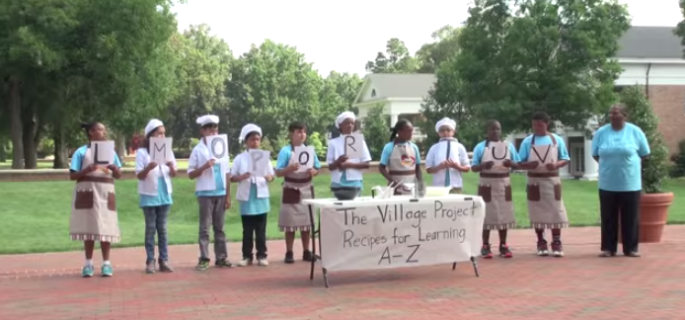Village Project serves summer students

Parents huddle around tables as their children excitedly point out their creations: macaroni cars, paper bowls or preliminary business plans for imaginary ice cream stands. These were the sights that greeted those who attended the closing ceremony of the“It Takes a Village Project” summer camp on July 24, which celebrated the work of the 75 students who were a part of it.
This was the second year for the summer camp, but Associate Professor Jean Rattigan-Rohr, the founder and director of the Village Project, said that an educational summer program had been in demand for a long time.
“Quite often sometimes, students are doing nothing during the summer,” she said. “It’s a pretty long time to be out from school. We see when students come back to school that they’ve lost some of the gains they’ve made during the school year.”
The camp started up last year with funding from Well’s Fargo bank and various volunteers and has grown since.
“Once we got the funding that we were able to do it, we gladly asked our friends all over campus to pitch in and the summer in the village is now quite the hit,” said Rohr. “I dread to think how we’re gonna top this next year but we’re gonna have to try.”
Though the camp is in its second year, the Village Project started eight years ago. Rohr said it grew out of one of her education classes as a way to help her students learn through hands-on experience how to teach students that are struggling.
“I didn’t think students really understood how to teach students who are struggling with reading, unless they had an opportunity to see where students are struggling,” she said.
Rohr worked with Elon and the local community to try to connect those students and their parents with her education students and the Village Project grew from there.
“We started with 16 students, we now have 142 and as you can see all the parents and their students who are here today are truly, truly involved in being a part of it,” she said.
Though as the program grew, so did the number of students who wanted to be a part of it.
“T“We have a really, really long waitlist,” Rohr said. “The waitlist has been long for five years and we feel really bad that we can’t because of human resources. The village is intensely one and one instruction for students who really need it.”
To accommodate that waitlist, the program has been working to expand the Village Project to more schools in the Alamance Burlington School System with great need.












